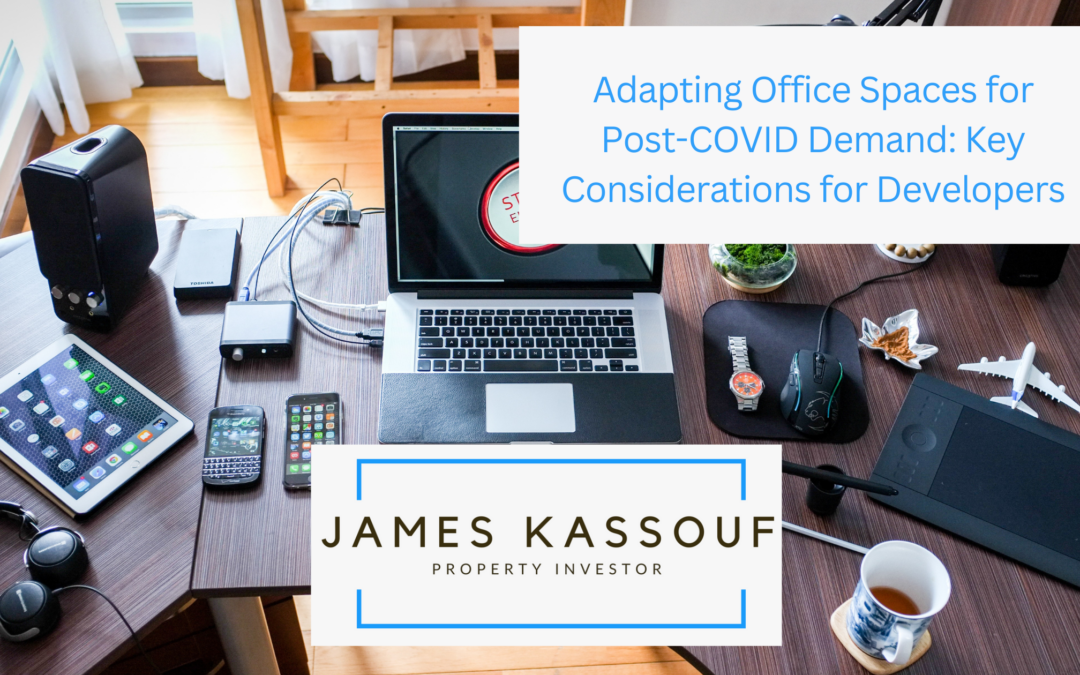The COVID-19 pandemic has dramatically reshaped how we work, leading to a fundamental shift in office space demands. As companies embrace hybrid models and prioritize employee well-being, developers must rethink their approach to creating and renovating office environments. Here are vital considerations for adapting office spaces to meet post-COVID requirements.
- Embrace Flexibility
One of the most significant changes in the post-COVID landscape is the demand for flexible workspaces. Companies increasingly seek environments that adapt to various needs, from collaborative spaces to quiet zones. Developers should focus on creating modular designs that allow for easy reconfiguration of spaces. This might include movable walls, versatile furniture, and areas that serve multiple purposes. Flexibility not only caters to changing workforce dynamics but also future-proofs the investment.
- Prioritize Health and Safety
Health and safety have become top priorities for both employers and employees. Developers must integrate features that promote a safe work environment. This includes improved ventilation systems, touchless entry points, and materials that are easy to clean. Biophilic design elements, such as natural light and green spaces, can also enhance well-being and reduce stress. By investing in these features, developers can create spaces that instill confidence in tenants and employees.
- Foster Collaboration and Community
As remote work persists, the need for in-person collaboration has become even more vital. Office spaces should encourage interaction and community-building. Developers can design open areas, lounges, and communal kitchens that facilitate socialization and teamwork. Incorporating technology that supports hybrid meetings will also enhance collaboration, making it easier for teams to connect regardless of their physical location.
- Invest in Technology
Integrating technology into office spaces is essential for meeting the demands of a modern workforce. Intelligent building solutions, such as occupancy sensors and advanced HVAC systems, can optimize energy use and improve comfort. Additionally, high-speed internet and robust IT infrastructure are crucial for supporting remote work and digital collaboration tools. Developers should consider how technology can enhance the user experience and streamline operations.
- Focus on Sustainability
Sustainability is no longer just a buzzword; it’s necessary in today’s development landscape. Tenants are increasingly seeking spaces that align with their environmental values. Developers should prioritize eco-friendly materials, energy-efficient systems, and sustainable landscaping. Not only does this appeal to socially conscious businesses, but it can also lead to cost savings in the long run.
- Enhance Outdoor Spaces
The pandemic has highlighted the importance of outdoor environments for mental and physical health. Developers should incorporate outdoor spaces into their designs through balconies, terraces, or landscaped areas. These spaces allow employees to recharge and enjoy fresh air, contributing to overall well-being and productivity.
The post-COVID office landscape is evolving rapidly, and developers must stay ahead of the curve to meet changing demands. By prioritizing flexibility, health and safety, collaboration, technology, sustainability, and outdoor spaces, developers can create office environments that attract tenants and enhance the overall employee experience. Adapting to these new expectations is not just about surviving in a post-pandemic world but thriving in a future where work and wellness go hand in hand.

